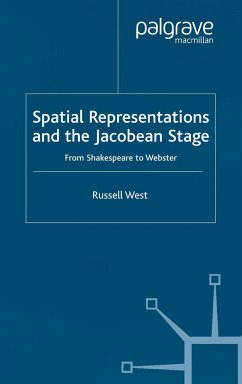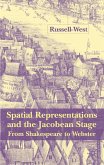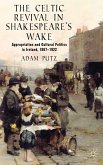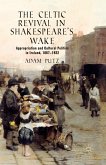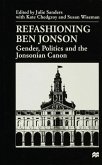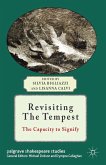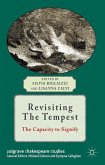Spatial Representations and the Jacobean Stage offers a timely alternative to theatre criticism's neglect of the intensely spatial character of theatrical performance. The book shows that early modern audiences were highly aware of the spatial aspects of the stage. West examines the ways Jacobean dramatists used stage space to explore the spatial transformations of early modern society - social mobility, wandering populations, rural enclosure, sea travel, localized empirical thought. Dramas by Shakespeare, Jonson, Middleton and Webster are scrutinized for their treatment of these controversial themes.
'This brilliant, theoretically complex book is a welcome addition to the growing body of renaissance critical discourse on social space and its relationship to the literary and cultural environment of the early modern period...The book's final chapter is astonishingly original and will hopefully point the way ahead for other reaissance scholarship into space and literature...This section, like other approaches in the book, is given impetus by West's determination to constantly renegotiate the terms of spatial inquiry in this highly impressive work.' - Early Modern Literary Studies
'...produces genuinely fascinating insights, which only such an excellent fusion of cultural history and theatre studies as West offers us here could hope to achieve.' - Bernhard Klein, ZAA
'...produces genuinely fascinating insights, which only such an excellent fusion of cultural history and theatre studies as West offers us here could hope to achieve.' - Bernhard Klein, ZAA

